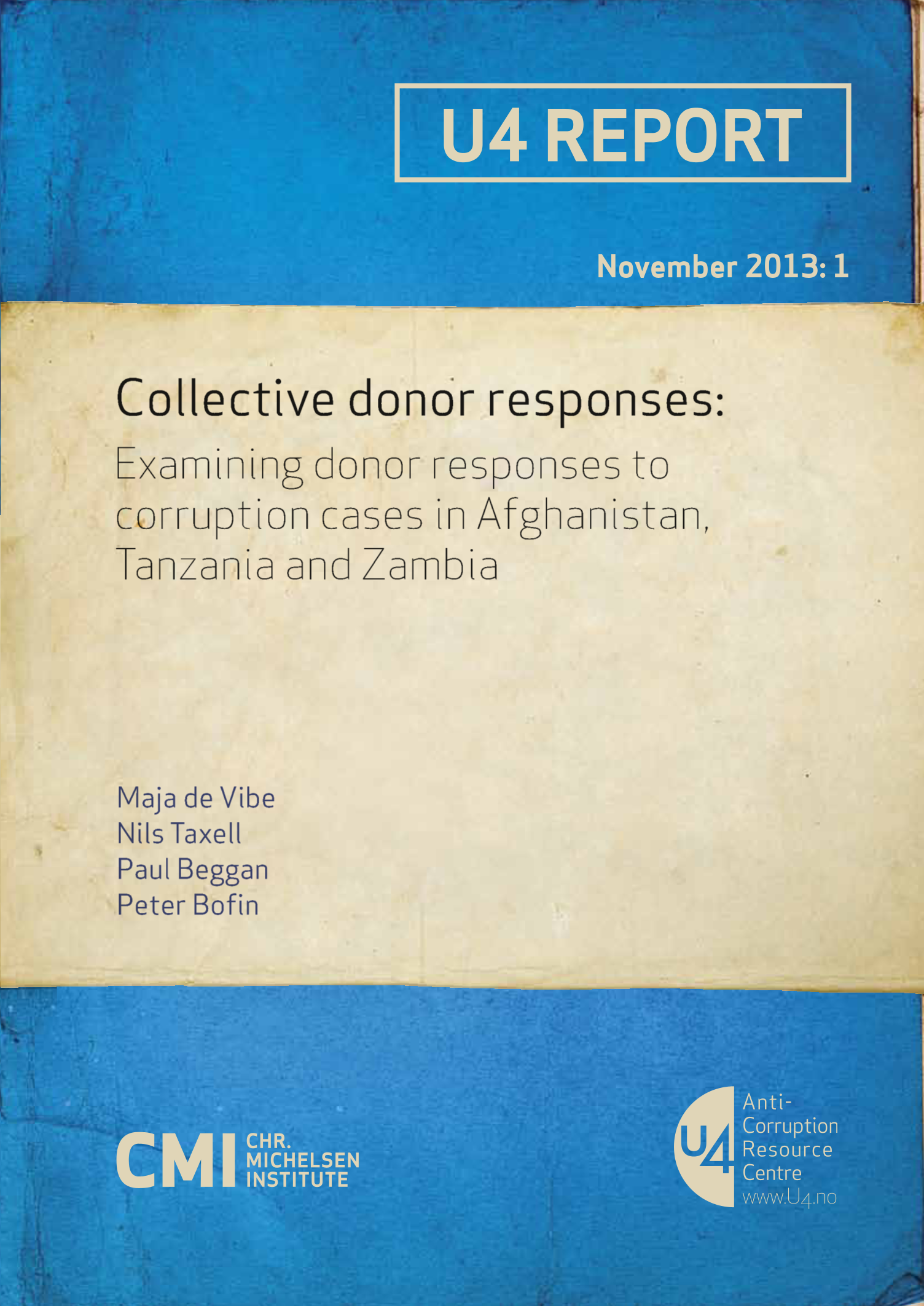U4 Report
Collective donor responses: Examining donor responses to corruption cases in Afghanistan, Tanzania and Zambia
In 2006, the OECD Development Assistance Committee (DAC) Ministers of Development expressed a desire to move towards more effective collective responses to corruption. A policy and follow up reports were developed, and Uganda was the first country where the new ideas were put into practice.
This report, which includes a study of cases from Afghanistan, Tanzania and Zambia, contributes to expanding the understanding of development partner responses to concrete corruption incidents. The reports seeks to explore the factors that influence the extent to which donors are able to act collectively as a joint, credible enforcer of anti-corruption policies in response to concrete cases. As a backdrop to the case studies, a literature review was conducted, with a focus on what drives change with regards to corruption – and whether there is a role for development partners in effectuating or supporting such change. It also looks at what the literature says about the key factors that influence the response of development partners to corruption cases.

Cite this publication
Bofin, P.; Beggan, P.; Taxell, N.; de Vibe, M.; (2013) Collective donor responses: Examining donor responses to corruption cases in Afghanistan, Tanzania and Zambia. Bergen: U4 Anti-Corruption Resource Centre, Chr. Michelsen Institute (U4 Report 2013:1)
Disclaimer
All views in this text are the author(s)’, and may differ from the U4 partner agencies’ policies.
This work is licenced under a Creative Commons Attribution-NonCommercial-NoDerivatives 4.0 International licence (CC BY-NC-ND 4.0)


